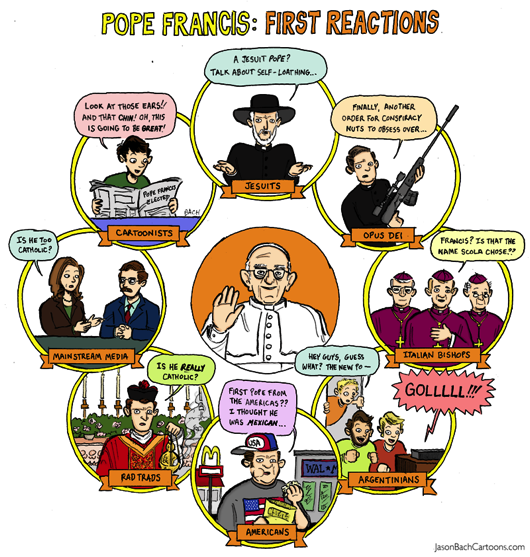
[Warning: long read :)]0
As I have said previously, I am a great fan of Dr. Yuval Noah Harari’s MOOC “A Brief History of Humankind,” which I have found not only entertaining and informative, but also thought-provoking and which I would wholeheartedly recommend to anyone. Dr. Harari’s style is engaging and masterful, the examples he uses are vivid (e.g., “The human race is no more than a herd of sheep that ended up with tanks and atomic bombs because of an evolutionary accident.”), his presenting alternative theories throughout the course is greatly illuminating and enriching and his use of the concept of “fiction” is a powerful didactic device that draws attention to the mental/material categories in a novel and forceful way.
Had I been writing this post before the course’s tenth lecture, it would have been 99% panegyric (with the 1% criticism reserved for the presentation of the sex/gender distinction not as fiction, given how that term is used throughout the course). Without taking away from the excellence of the first 9 lectures, I do have serious misgivings about the tenth, entitled “The Law of Religion,” where I consider Dr. Harari’s presentation of Christianity to be a caricature instead of an attempt at synthesis and summary. What makes this the more disappointing is that he is clearly a highly intelligent and learned person, very capable of speaking about religion in an informative and balanced way, as he demonstrated with the excellent exposition of Buddhism in Segment 3 of the lecture.
Even though I was not going to write about my experience of Lecture 10, I have changed my mind after being encouraged to do so by my überbestie JMGR - so you can consider this to be both a “work made for hire” and an attempt to present my grounds for calling it a caricature in more than the 140 characters of a tweet. Before delving into the details, I’d also like to say that the following will be my attempt to present what I, as a Christian, believe and that its justification by reference to established Christian doctrine will be omitted (each of the following points meriting long blog posts individually). The format I’ll use is to go through a number of claims that Dr. Harari makes about Christianity, each immediately followed by my own account. Here I will not be exhaustive (and hopefully not exhausting either), e.g., glossing over the treatment of Christian persecution by the Roman Empire, and try to focus on the most substantial claims.1
First, Dr. Harari claims that Christians believe “that you could make deals with the supreme power of the universe in order to recover from illness, to win the lottery, or to gain victory in war.” This, to my mind is a caricature of prayer, which is presented as a bargaining process: I’ll say these prayers, do some penance, go to mass, etc. and in exchange god will grant me a wish. This is nothing like what my relationship with God, or prayer are for me. I believe God loves me and has a plan for me that starts in every present moment. Prayer is the maintaining of a relationship with God, both by listening and being disposed to discerning his plan and by speaking and sharing my joys, worries and needs with him. Such sharing is not the demanding of an overriding of the Laws of Nature, but instead a silent conversation, an opening up, a turning towards. It also brings with it what Dr. Harari presented so well about Buddhism - an acceptance of both joys and sorrows, of successes and defeats, all of which are received in the context of the above prayer, which - together with a seeking of God in all around me - is the basis of my being Christian.
Second, Dr. Harari presents Christianity as incapable of coexisting with other religions:
“A religion that recognizes the legitimacy of other faiths implies either that its god is not the supreme power of the universe, or that it received from the one and only god only part of the universal truth. [...] Monotheists could not live with these ideas. Monotheists usually believed that they are in possession of the entire message of the one and only god. They were compelled to discredit all other religions. If our religion is true, no other religion can also simultaneously be true.”This, to my mind, is fundamentally a caricature of the concept of God itself and of epistemology too. It first assumes that God is wholly knowable, then that Christians believe they fully know such a fully knowable God and finally that they know that they have such full knowledge. I dispute all three assumptions. Not only is knowledge fundamentally incomplete, indirect and limited even when it comes to my self, let alone to another or a world around me, or to a God whom I believe to be both more immanent and transcendent than anything else. Every single person, their experiences, insights and beliefs are of interest to me and an opportunity to look for the traces of God’s presence. At the same time it does not mean that I believe Christianity to be incomplete, on the contrary, or that I, conversely, have to believe it to have exclusive access to the Truth and to God.
Third, Dr. Harari presents Chirstian saints as being connatural with the gods of polytheism:
“Homo sapiens tend to divide the world into we and them and sapiens want to be in contact with powerful entities that will help us against them. So the idea that there is only one supreme power in the world that cares about everybody equally this was very difficult even for Christians […] to fully adopt and understand. Consequently Christianity [...] created an entire new pantheon of saints and people simply began to worship [... them] just as previously they worshipped all kinds of different gods. […] So when England and France […] go to war […] it is believed that Saint Martin helps the French and Saint George helps the English - just like the old gods.”The irony here that it is precisely the saints who are a strong argument in support of the belief that God “cares about everybody equally.” To me the saints are my fellow Christians, who have lived lives that mirror Jesus’ own life to a particularly high degree and who are therefore examples for me to follow. Not only does the vast variety of backgrounds from which they come (social, ethnic, educational and cultural) support the claim for the universality of God’s call, but their own care and love for their neighbors does too. Since I believe that these saints are now alive in the immediate presence of God, having a relationship with them through prayer is logically consistent with the relationship I have with God himself.
Fourth, Dr. Harari presents the “problem of evil” as follows:
“The problem of evil […] asks why is there evil in the world, why is there so much suffering in the world, why do so many bad things happen even to good people. [...] For monotheists the problem of evil is extremely difficult. Monotheists have to perform all kinds of amazing intellectual acrobatic tricks to explain how an all-knowing, all-powerful and perfectly good god allows so much suffering in the world. [...] One answer that monotheists try to give is: “This is god’s way of allowing for human free will. If there was no evil in the world, humans could not choose between good and evil and hence there would be no free will.” This is one of these intellectual tricks that monotheists use to answer the problem of evil.”Again, this strikes me as a caricature: there is a glaring problem with Christianity, so Christians come up with shaky stories to fool themselves. My objection here is not that the “problem of evil” is a challenge, but that presenting it as something that Christians deal with via self-delusion is a caricature. There is no satisfactory explanation for the “problem of evil” - all that I, as a Christian have are some intuitions. Of these, the argument from freedom is a strong one and I fail to see how it can be categorized as a “trick.” It still does not explain why there is evil and suffering in the world though, but only how freedom and the necessity of real choice are linked. Why could God not have done it in a different way is a valid question though! Another, strong intuition to me as a Christian is Jesus’ own life, where the acceptance of suffering - a suffering by a supremely innocent person who was scared of it - plays a pivotal role. All I can say about suffering is that it is linked to the freedom that lets me establish genuine relationships with my fellow humans and with God, that Jesus having endured it also points to its importance, but I can certainly not claim to be in a position to explain or justify it.
Fifth, to sum up his position with regard to Christianity, Dr. Harari has the following to say:
“Monotheism is a kind of mishmash, a kind of bringing together all kinds of monotheist, dualist, polytheist and animist legacies, constantly influencing and changing each other, all coexisting with each other under one big divine umbrella. The average Christian believes in the monotheistic god, but also believes in the dualist devil, in the polytheist saints, and in the animist ghosts and demons.”Eh ... no ... I believe in no ghosts or demons, the saints are my brothers and sisters - not gods, and the devil is no equivalent “opposing power” to God (as would follow from Dr. Harari’s dualist definition) but simply the personification of a turning away from God while possessing full knowledge of His being God.
And breathe ... :)
Needless to say, I am happy to provide references for how what I have said about my own beliefs above is official Catholic teaching and how it is consonant with the beliefs of Christians also from past centuries. At the same time I am not claiming that no Christian has ever held some or all of the beliefs that Dr. Harari, to my mind mistakenly, presents as being universally and fundamentally Christian - certainly they have: in the same way in which some have used microwaves to mistreat cats, without thereby rendering microwaves primarily instruments of cat torture ...
0 Many thanks to my überbestie PM for his nihil obstat. :)
1 I am skipping the part about heaven and hell only because its exposition is factually holey (not holy :)), where to Dr. Harari’s statement: “There is no trace of [heaven and hell] in the Old Testament” I only have three words to say: Daniel 12:2 ... Seriously though, there would be things to say about his claim that such beliefs are dualistic, but their refutal would take us too far off-track and I’ll leave them for another time.


